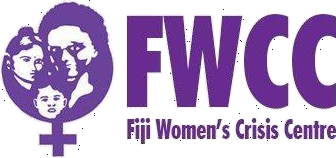FWCC: Safety of young girls, women and children should be a priority
5 Jan, 2021
The safety of young girls, children and women taking refuge at various evacuation centers around the country following the aftermath of Tropical Cyclone Yasa should not be compromised.
That’s the call from Fiji Women’s Crisis Centre Coordinator Shamima Ali following the alleged rape of a 10-year-old girl at an evacuation center in Vanua Levu, last week.
Ms Ali says the Natural Disaster Management Office (NDMO) and other stakeholders who are overseeing operations at evacuation centers around the country should create a safe space that meets the needs of women, girls and children living there.
She says the vulnerability of attacks, abuse, sexual harassment and violence on young girls, children, women, people with disabilities and the LGBTI community doubles during and after a natural disaster.
Ms Ali says social issues faced in evacuation centers should not be left aside.
She says the government and first responders visiting evacuation centers should have proper knowledge about gender-based violence (GBV).
“I believe every worker who is there and at every national disaster meeting should have a round-the-table discussion and knowledge about GBV and this should be part of everyone’s agenda and should be mainstreamed,” she said.
“Our first responders should now be trained to deal with this situation, they should know what to look out for, and whether it’s governmental or non-governmental, we should have child protection and the protection of women and girls within the evacuation centers and during emergencies.
“After TC Winston, there was so much work done that all response procedures should have been streamlined by now. We know we already face the risk of climate change; we know we are going to get more cyclones.”
Ms Ali says it seems like government and development agencies are reacting every time something happens.
“All the development agencies that are out there doing the assessments now, they should have been assisting the government in doing these assessments throughout, knowing that climate change is such a big issue and has been affecting us since long.
“Cyclones are being predicted beforehand so government and development partners should be prepared, identify where the evacuation centers are, how are they managed, and are they safe.”
She says often, men and women are put together in one room at an evacuation center and this is when it becomes very unsafe for the women.
Many times, basic necessities such as food, water, toiletries, sanitary items and sleeping essentials are not provided at evacuation centers, says Ms Ali.
“Sometimes the washrooms and bathrooms at many evacuation centers do not have doors, the locks are not working and the louver blades are missing from the windows.
“It should not only be about providing shelter so that people are safe from a natural disaster. We need to make evacuation centers safe first before putting people in them.
“There are bigger social ills and crimes that needs to be prevented from happening in evacuation centers.”
Ms Ali also says that a Code of Conduct was developed for first responders during natural disasters following TC Winston in 2016.
“Where is the Code of Conduct for first responders? So many copies are available and that should have been the first thing to be put in place immediately after the disaster.”
Ms Ali also urged those visiting TC Yasa affected areas, including Ministers, Members of Parliament, development officers and NGO representatives to not touch children without the permission of their parents or unless they are hurt.
“By doing this, you are encouraging pedophile-behavior and pedophile and not setting a good example.
“Also stop using children for photo opportunities and do not increase their trauma. When you take supplies into the communities, don’t try to be photographed with it. Think about the people’s trauma. They are going through a lot.
“If you are just going there to get some mileage for yourself, please do not do it. Don’t take pictures unless they are for official use, showing the extent of the damage, etc.”
She also urged people to dress appropriately while visiting TC Yasa affected areas and be mindful of the traditional and cultural protocols.
Ms Ali says its high time for government to stop working in isolation and get all stakeholders that have the expertise to work together to ensure the safety of our people during and after a natural disaster.
Ends
For more information, please contact Shamima Ali on 9992 875
